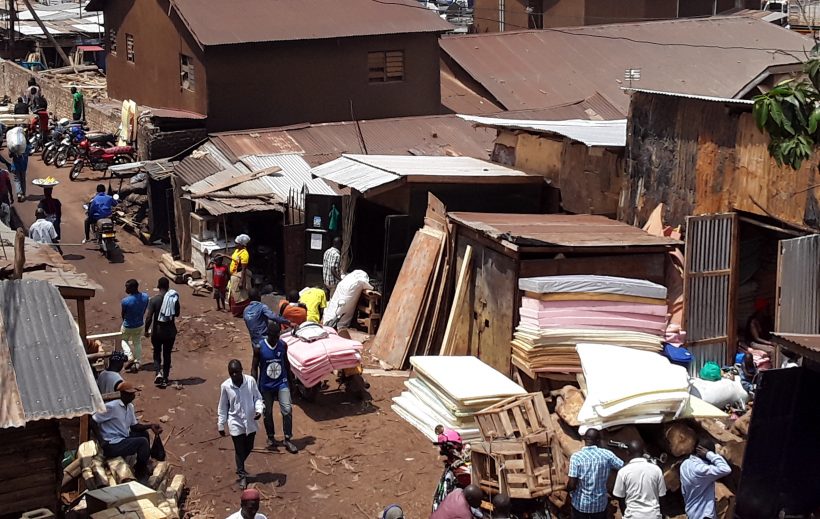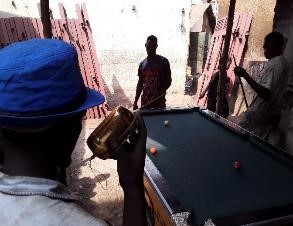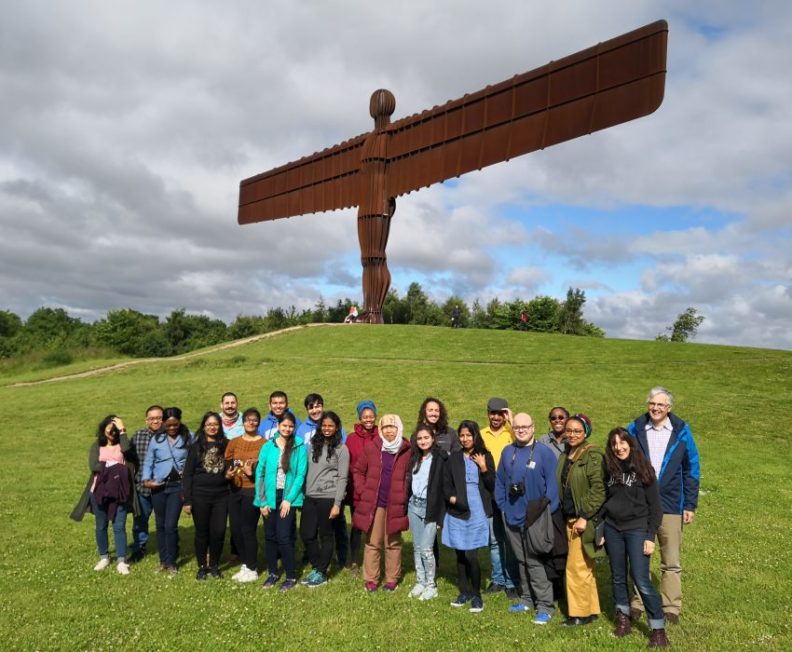Business Points in Daylight and Dwelling Places at Night

Many young men and women have migrated from the surrounding villages of Uganda to the industrial neighbourhoods of the city of Kampala, Uganda’s capital and largest city. The youth move to those areas for different reasons: hostile homes, poverty, child abuse and neglect, peer influence, school drop-out and so on. Due to lack of proper urban planning, some of these neighbourhoods have grown into an industrial and residential township with poor infrastructure. The lack of developed infrastructure and poor service provision has exposed the residents to several challenges including diseases such as cholera and the dreaded HIV/AIDS.
In these industrial zones the young men are dealing in casual jobs and training-on- job situations in order to survive. They hang around, visit the sports betting-house or play pool during leisure time (during lunch time or when they don’t have any work). This situation makes them highly vulnerable to exploitation at work because they are illiterate and many ill trained to measure with current trends of the labour market, job developments and pressures in the artisan community. Besides that, young people in this predicament become a high risk group since they enter new environment with little or no experience on how to make a living and end up in social trap of sex trade or prostitution in order to survive. Their ignorance and sometimes inadequate knowledge about prevalence of the feared HIV/AIDS, complacency and social pressure exposes the high-end complex sexual engagements and networks that lead to infection.
Visiting the betting-house and playing pool while waiting for work.


Today, the low levels of awareness among young people after a considerably successful decade of a downward trend in HIV infections in Uganda necessitates research to explore possibilities through art and creativity in tackling the challenges associated with HIV/AIDS amongst young people (young artisans- 15-24 years). I anticipate that young artisans in Uganda are a high risk population and that engaging interdisciplinary approaches through a participatory approach to art and creativity can enhance HIV/AIDS awareness, prevention and at the same time empowering young artisans faced with the epidemic and its associated challenges such as stigma and social discrimination will avert the situation. The selected industrial sites for my research in Kampala are characterised by shanty structures that house artisans and other retail/ petty business people (doubling as business points in daylight and dwelling places at night). I realised that the sites I visited during my pilot research, are demographically dominated by young men who engage in a multitude of artisanal activities such as carpentry, wood work, machinery work timber sales and welding and general metal working using traditional, local methods and skills (known as jua kali) whereas the young women are involved in doing petty businesses and auxiliary jobs that compliment artisanal activities in the industrial zones such as finishing and polishing built furniture pieces, providing food and drinks, timber sales, shop attending in, for example mobile money businesses, sports betting and gambling shops.
Shanty structures that house artisans and other retail/petty business people (doubling as business points in daylight and dwelling places at night).

I embarked on initiating direct contact with the young artisans considered to be vulnerable to HIV/AIDS in order to interactively interest them in developing their creative capacity in a bid to enhance new local knowledge for empowerment, HIV/AID awareness and fighting stigma and other challenges associated with this epidemic. I also benefited from working closely with these young people where a good number of artisans allowed me to engage in their day- to-day local projects. Through chatting and social conversations, I was able to acquire more friends, freely learnt and shared skills and practical knowledge in wood and metal working while talking about their everyday life experiences.
Chatting with a group of artisans while helping a young welder to bend metal bars

This helped me identify individuals who will participate in the workshops and group discussions in the main field work project of my research. There is an apparent unequal balance of social power between young men and women, despite programmes and policies such as the 2006 Uganda National Gender Policy that have increased opportunities to attain gender equity and equality. The young women on the sites will be encouraged to participate and help generate answers to awareness, prevention and tackling challenges of HIV/AIDS in industrial settings. I strongly contend that the opportunity given to participants in this study to produce narratives and thoughts about their life and work experiences will provide enriching concepts and local knowledge about the wider social construct and meaning about life, work and HIV/AIDS which in turn will inform the direction of this research, public health policies and intervention strategies appropriate for local communities in the informal sector in Uganda.
Robert Ssewanyana – Postgraduate Researcher (PhD) and Applied Sculptor

